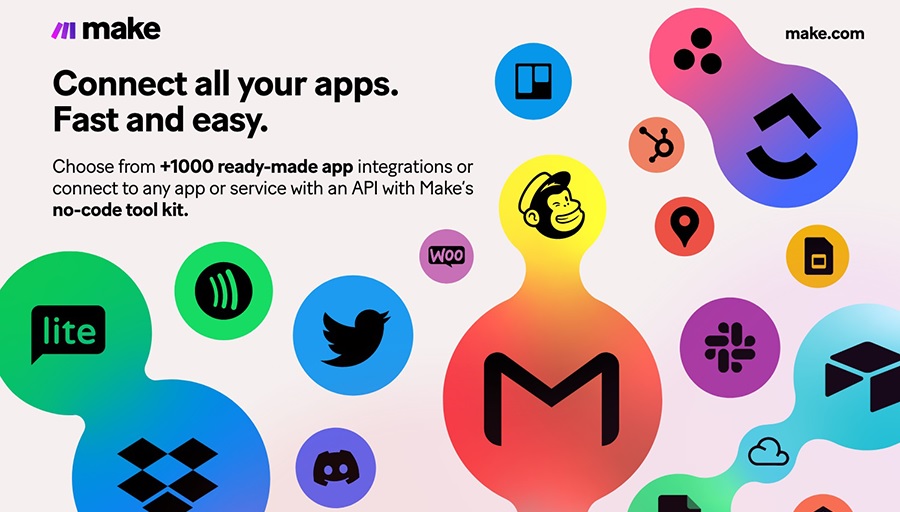
Every entrepreneur dreams of building a business that not only thrives today but also survives and grows tomorrow. The challenge, however, is that the future is unpredictable. Customer expectations evolve, markets shift, and competitors adopt new tools to gain an edge. The businesses that stay resilient are those that prepare for change before it happens. One of the most effective strategies for future-proofing a business today is leveraging automation and AI-powered systems. These technologies allow companies to adapt quickly, reduce risk, and scale sustainably.
Contents
- What Does It Mean to Future-Proof a Business?
- Why Automation and AI Are Key to Long-Term Success
- Core Areas Where Automation Future-Proofs Business
- The Benefits of Future-Proofing with AI Systems
- Overcoming Concerns About Automation
- Steps to Start Future-Proofing with AI
- Real-World Examples
- The Future Belongs to Adaptive Businesses
What Does It Mean to Future-Proof a Business?
Future-proofing isn’t about predicting every twist and turn in the market. It’s about building systems that are flexible, efficient, and resilient enough to withstand changes. For entrepreneurs, this means investing in tools that streamline operations, cut costs, and create space for innovation. Automation and AI-powered systems are uniquely positioned to provide that stability because they reduce reliance on manual processes and enable businesses to operate intelligently.
Why Automation and AI Are Key to Long-Term Success
Unlike traditional business systems that require constant manual input, automation and AI bring adaptability. Automation ensures routine tasks are completed consistently, while AI adds the ability to learn from data and make predictions. Together, they create workflows that not only run efficiently today but also evolve with changing needs tomorrow.
Core Areas Where Automation Future-Proofs Business
Automation and AI can be applied across the business, but some areas stand out for their ability to strengthen long-term resilience:
1. Customer Service
AI-powered chatbots and helpdesk systems provide 24/7 support, ensuring customers always receive assistance. This builds loyalty and keeps businesses competitive, even when resources are stretched.
2. Marketing and Sales
AI systems segment audiences, personalize campaigns, and track performance in real time. This helps businesses adapt marketing strategies quickly as customer preferences shift.
3. Financial Management
Automated invoicing, expense tracking, and forecasting keep businesses financially healthy. Predictive analytics allow entrepreneurs to anticipate cash flow needs and avoid costly surprises.
4. Operations and Supply Chain
AI monitors inventory, predicts demand, and automates reordering. This reduces the risk of stockouts, waste, and disruptions caused by unexpected changes in demand.
5. Human Resources
Automation simplifies onboarding, payroll, and scheduling. AI can also analyze employee engagement data to flag potential retention risks, ensuring teams remain strong as businesses grow.
The Benefits of Future-Proofing with AI Systems
Integrating automation and AI into business operations delivers long-term benefits that go beyond efficiency:
- Resilience: Automated systems keep operations running smoothly even during disruptions, such as sudden spikes in demand or staff shortages.
- Scalability: AI workflows adapt as the business grows, handling larger volumes without requiring proportional increases in staff.
- Cost Savings: By reducing errors and streamlining processes, businesses save money that can be reinvested in growth.
- Data-Driven Insights: AI provides real-time analytics and forecasts, enabling smarter decision-making for long-term planning.
- Competitive Advantage: Businesses that adopt automation early stay ahead of competitors who rely on outdated, manual processes.
Overcoming Concerns About Automation
Some entrepreneurs hesitate to adopt AI-powered systems due to misconceptions. Here are common concerns and clarifications:
“It’s too expensive.”
While automation once required major investments, today’s tools are subscription-based and scalable, making them affordable for small businesses.
“It’s too complicated to set up.”
Modern platforms are designed for non-technical users, offering intuitive dashboards, drag-and-drop builders, and prebuilt templates.
“It will replace my team.”
AI supports employees by handling repetitive tasks, allowing them to focus on creative, customer-focused, and strategic work that drives growth.
Steps to Start Future-Proofing with AI
If you’re ready to prepare your business for tomorrow, here’s a roadmap to adopting automation and AI systems:
1. Audit Your Processes
Identify areas that consume the most time or are prone to errors. These are strong candidates for automation.
2. Define Your Goals
Decide whether your priority is saving time, cutting costs, improving accuracy, or enhancing customer experiences. Clear goals guide tool selection.
3. Choose the Right Tools
Pick platforms that integrate with your existing systems and scale with your business needs.
4. Start Small
Implement AI in one or two workflows, such as invoicing or scheduling. Measure results before expanding further.
5. Monitor and Adapt
Track time savings, cost reductions, and customer satisfaction. Use data to refine processes and build a stronger foundation for future growth.
Real-World Examples
Here are some examples of small businesses future-proofing with AI:
- A subscription-based retailer uses AI to predict customer churn and automatically send retention offers, reducing cancellations by 20%.
- A local clinic implemented AI scheduling to reduce no-shows, improving patient flow and revenue stability.
- A logistics company uses AI to forecast demand and optimize delivery routes, lowering costs and improving customer satisfaction.
The Future Belongs to Adaptive Businesses
No business can predict the future, but entrepreneurs can prepare for it. By adopting automation and AI-powered systems, businesses become more resilient, adaptable, and competitive. They minimize risks, maximize opportunities, and build a foundation for sustainable growth. Future-proofing is not about knowing what will happen – it’s about being ready for anything. For entrepreneurs, AI is the toolkit that makes that readiness possible.

